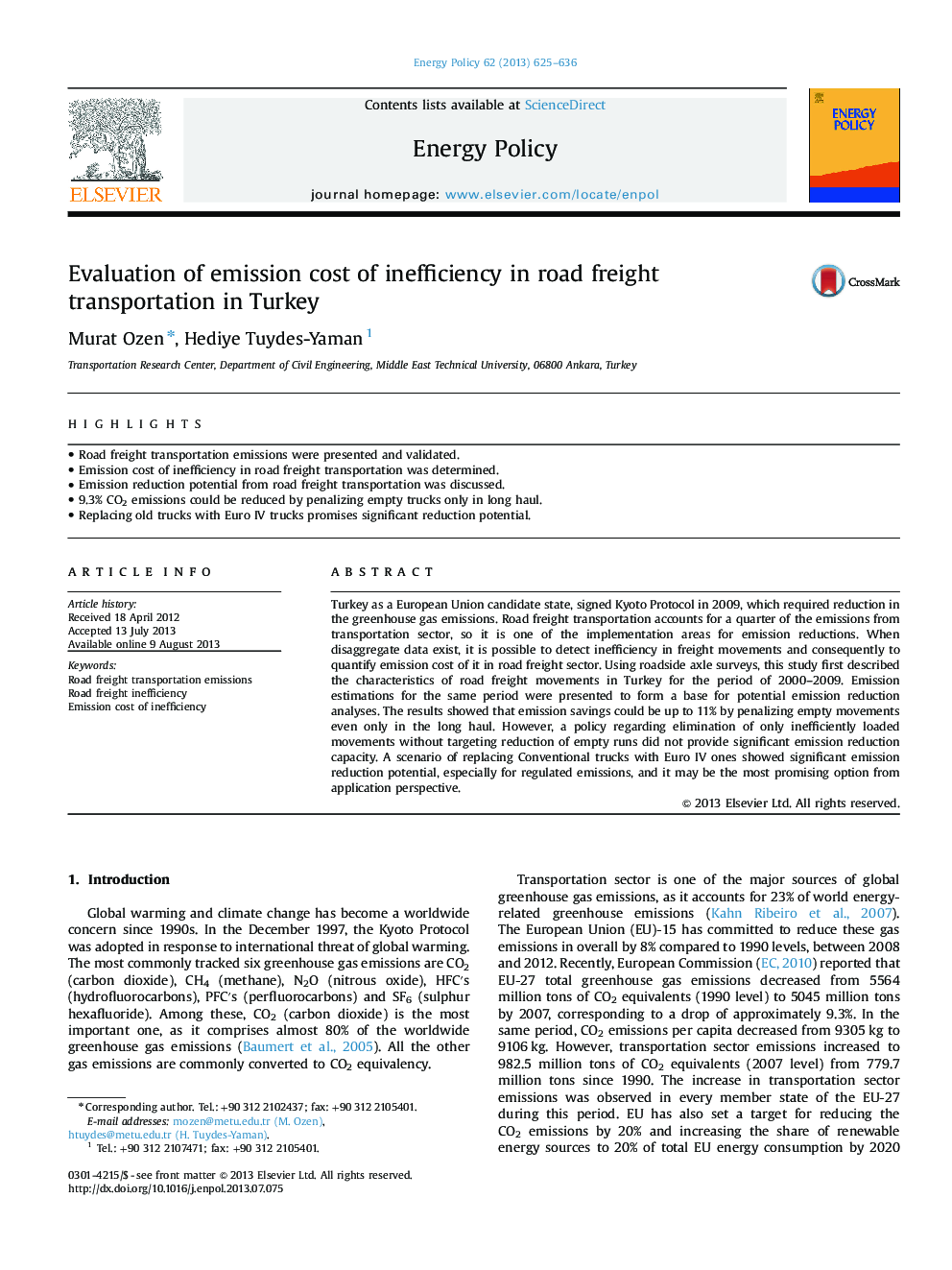| Article ID | Journal | Published Year | Pages | File Type |
|---|---|---|---|---|
| 7404241 | Energy Policy | 2013 | 12 Pages |
Abstract
Turkey as a European Union candidate state, signed Kyoto Protocol in 2009, which required reduction in the greenhouse gas emissions. Road freight transportation accounts for a quarter of the emissions from transportation sector, so it is one of the implementation areas for emission reductions. When disaggregate data exist, it is possible to detect inefficiency in freight movements and consequently to quantify emission cost of it in road freight sector. Using roadside axle surveys, this study first described the characteristics of road freight movements in Turkey for the period of 2000-2009. Emission estimations for the same period were presented to form a base for potential emission reduction analyses. The results showed that emission savings could be up to 11% by penalizing empty movements even only in the long haul. However, a policy regarding elimination of only inefficiently loaded movements without targeting reduction of empty runs did not provide significant emission reduction capacity. A scenario of replacing Conventional trucks with Euro IV ones showed significant emission reduction potential, especially for regulated emissions, and it may be the most promising option from application perspective.
Related Topics
Physical Sciences and Engineering
Energy
Energy Engineering and Power Technology
Authors
Murat Ozen, Hediye Tuydes-Yaman,
